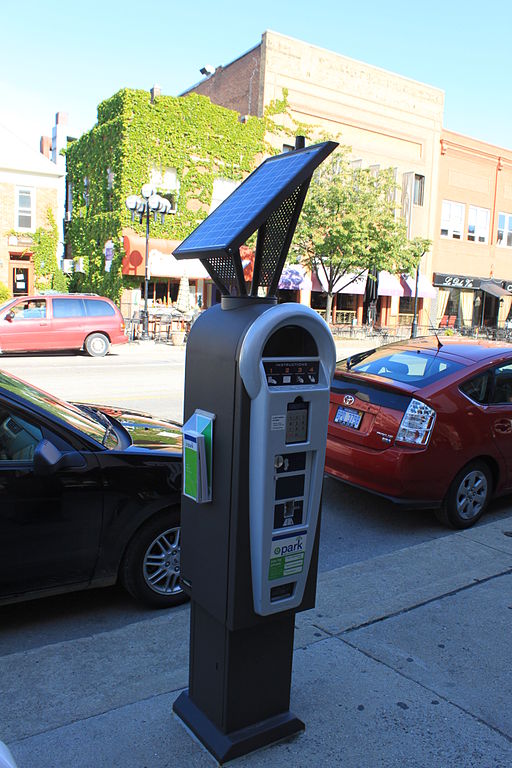Getting the price of on-street parking right is important for commercial areas in cities. Setting prices to ensure that about one space per block remains open reduces double-parking, cuts down on unnecessary traffic, and can speed up buses as a result.

Putting the right price on parking isn't always popular, but by choosing good systems and technology to manage curbside spaces, cities can make it easier for motorists. Paul Barter at Reinventing Parking has written a handy guide to 18 different types of on-street parking management, from very low-tech cash payment to state-of-the-art GPS-based systems.
He concludes that the best systems are digital and track payment via license plates or vehicle registration numbers, as opposed to the physical space the car occupies. Of those, he highlights these four options as the best for cities today -- read the whole post for a detailed look at how these systems work:
The digital pay-by-plate options seem to do best to maximize parking-management effectiveness and minimize the pain.
They score highly on most of the key criteria mentioned earlier, especially high convenience for users, easy price adjustment, data stream, low-cost integration with enforcement, low transaction costs, suitability for motorcycles, and ability to integrate with permits and special discounts.
This means that any city tackling this issue afresh today should probably focus on these options (in pay-by-plate mode): 12: Smart (digital) multi-space meters with Pay-by-License-Plate15: Pay-by-smart-phone-app16: In-vehicle meters, or17: Global Positioning System (GPS)-based in-vehicle metersor some combination of 2 or more of these (including all of them together).
In addition, if your city does not already have parking meters, then seriously consider skipping in-street meters completely and just use the mobile options (15, 16 and/or 17)!. These mobile phone and in-vehicle meter options have very low capital costs. But be careful to keep transaction costs down (via mobile wallets for example). For example, in Tel Aviv the only options to pay for on-street parking are pay-by-phone (two companies) and in-vehicle meter (one company).
What do you think about on-street parking payment mechanisms? And could more places skip the parking meter altogether and just use mobile payment options?
Elsewhere on the Network today: Greater Greater Washington shares details from WMATA's plan to restore trust in the agency. The Wash Cycle corrects a conservative writer who said D.C.'s bike-share program should be drained along with the rest of the Washington swamp. And The Overhead Wire reviews what we know about Trump's pick for transportation secretary, Elaine Chao.






